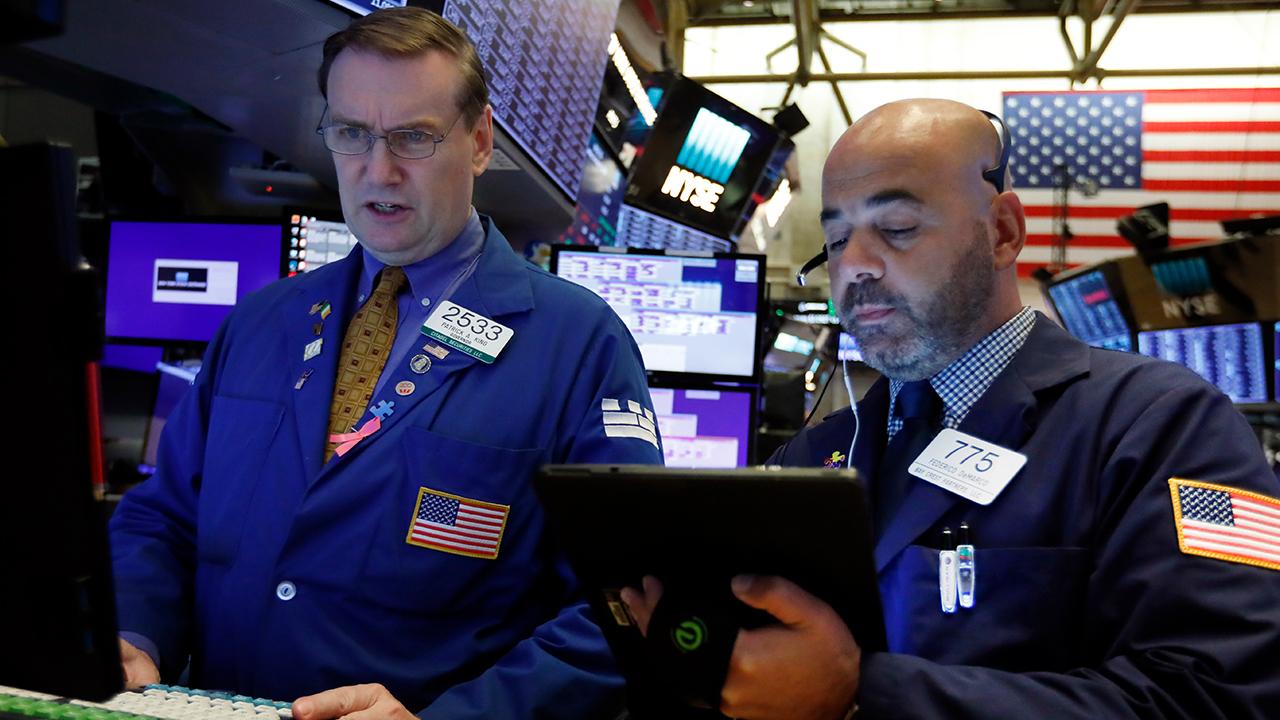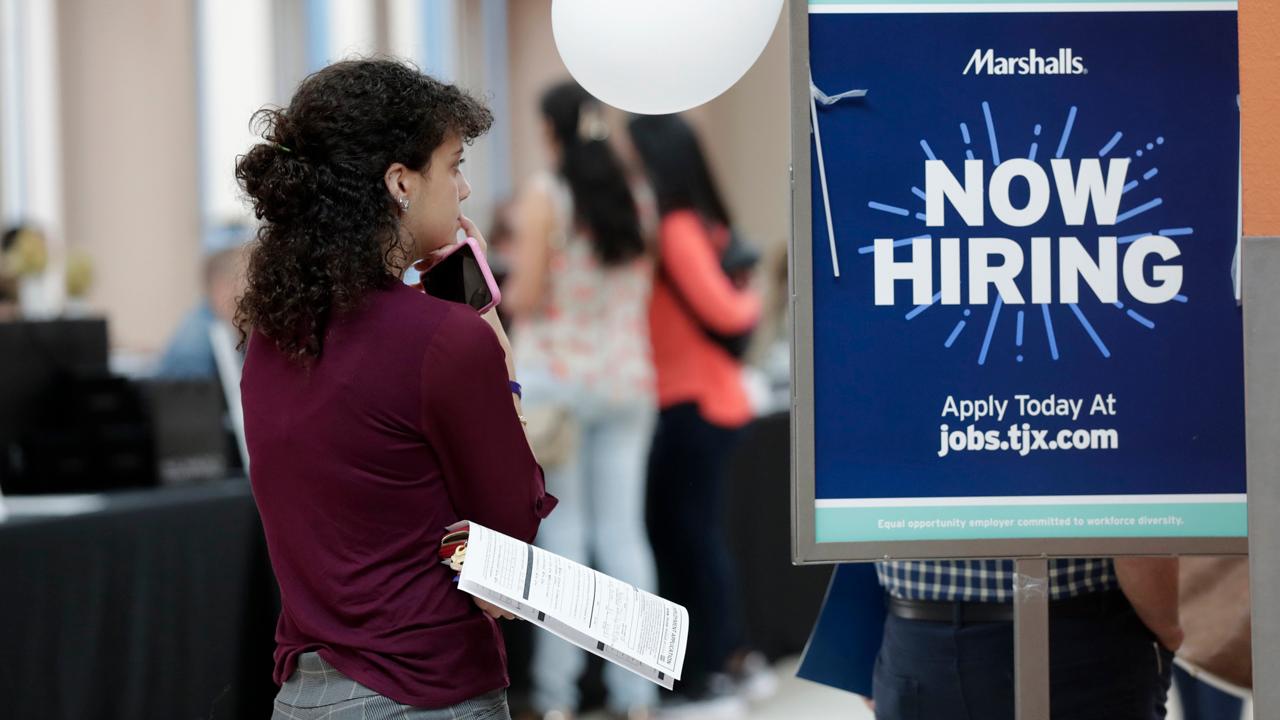The October jobs report may be a one-off. Here's why
U.S. hiring likely stumbled in October, with economists forecasting one of the lowest payroll numbers since 2017, when hurricanes battered the country, forcing businesses to close.
But investors shouldn’t fret, yet: Lackluster job creation is largely attributed to the nearly six-week General Motors strike -- it began Sept. 16 and is the largest against a U.S. business since the last GM strike 12 years ago -- not to an economic slowdown.
| Ticker | Security | Last | Change | Change % |
|---|---|---|---|---|
| GM | GENERAL MOTORS CO. | 84.24 | +0.94 | +1.13% |
Economists surveyed by Refinitiv expect the U.S. economy to have created 89,000 jobs in October, down from 136,000 in September.
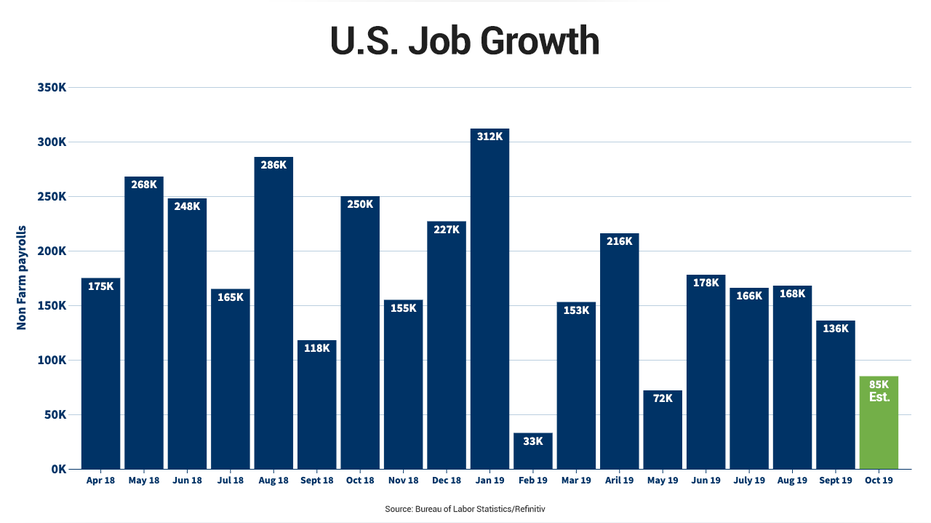
That’s well below the average employment growth of 161,000 jobs year-to-date.
Unemployment, meanwhile, is forecast to edge up slightly to 3.6 percent, still hovering around a 50-year-low.
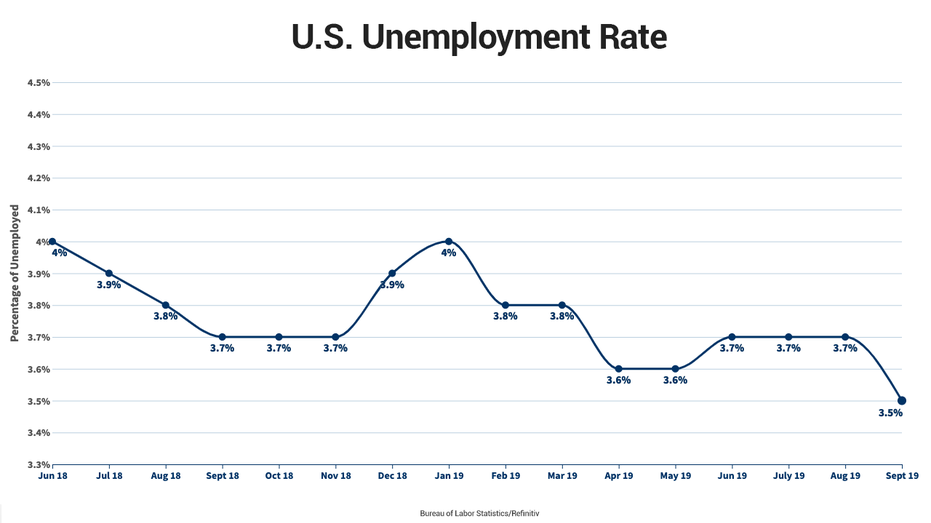
The GM strike impacts about 48,000 workers directly, but its reach goes beyond that: There could be an additional 200,000 employees at GM suppliers who could be caught in the crossfire, say experts.
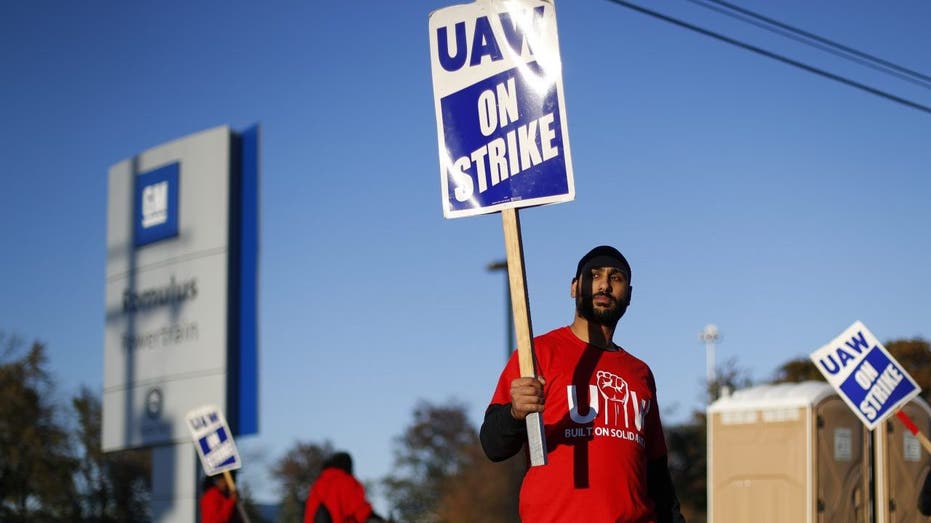
The strike, which ended last Friday after the United Auto Workers said its membership ratified a new four-year contract with the automaker. In 1998, during a previous GM strike, payrolls fell by 132,000, according to Brad McMillian, Commonwealth Financial Network’s chief investment officer.
While the industry employs fewer people now, the fallout could still be sharp, he said -- possibly wiping out most of September’s job growth.
“Don’t be alarmed if we do get that lower number,” McMillian said. “Most of this damage will be reversed when the strike ends, and we can expect job growth to tick back up. This is a crash we can see coming, but it is one that will be temporary.”
GET FOX BUSINESS ON THE GO BY CLICKING HERE
As the U.S. continues the longest economic expansion on record, investors are looking at the Department of Labor’s monthly payroll and unemployment data for signs that the rapid job growth over the past two years is softening and pointing to an overall growth slowdown.
The labor report comes on the heels of new data published on Wednesday, which showed the U.S. economy expanded at a 1.9 percent annualized pace in the three months through September. Though it was still slower than earlier in the year, the GDP expansion topped the 1.6 percent that economists surveyed by Refinitiv were expecting, helping to alleviate some recession jitters.
Last month, private-sector hiring expanded by 125,000 jobs, topping expectations, according to the latest ADP National Employment Report.
“While job growth continues to soften, there are certain segments of the labor market that remain strong,” Ahu Yildirmaz, vice president and co-head of the ADP Research Institute, said in a statement.




















